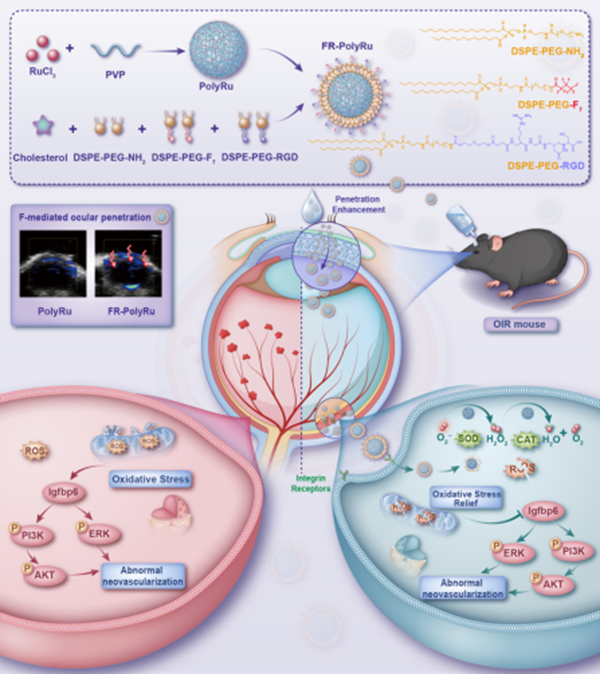

Researchers at the School of Basic Medical Sciences of Zhengzhou University (ZZU) have developed innovative nanozyme eye drops that enable non-invasive delivery of therapeutic agents to the retina, showing significant efficacy in repairing abnormal blood vessels in mouse models. The study, published in the journal Science Advances, presents a promising alternative to current invasive treatments for retinal vascular diseases.
Retinal neovascular diseases, such as diabetic retinopathy and wet age-related macular degeneration, are leading causes of blindness worldwide. Existing clinical treatments primarily rely on repeated intravitreal injections of anti-VEGF agents, a highly invasive approach associated with poor patient compliance, risks of infection and bleeding, and limited efficacy in some cases. A major challenge has been developing effective strategies that can safely penetrate ocular barriers like the cornea and blood-retinal barrier.
To address this, the team created FR-PolyRu nanozyme eye drops, composed of fluorinated and RGD-modified lipid shells encapsulating PolyRu nanozymes. Fluorination enhances corneal and retinal barrier penetration by reducing the activation energy required for transmembrane transport. The nanozymes' catalytic activity locally generates oxygen, providing propulsion for drug delivery, while RGD modification enables targeted accumulation at diseased vascular sites.
Once in the retina, FR-PolyRu exhibits superoxide dismutase (SOD) and catalase-like activities, continuously scavenging reactive oxygen species (ROS), alleviating oxidative stress, and improving the local microenvironment. This cascade effectively suppresses pathological angiogenesis. In a mouse model of oxygen-induced retinopathy, treatment with FR-PolyRu eye drops significantly reduced non-perfusion areas and neovascularization while decreasing retinal cell apoptosis.
The study, supported by the National Natural Science Foundation of China, was co-corresponding authored by Professor Jiang Bing, Professor Jiang Wei, and Academician Yan Xiyun. The findings highlight the potential of catalytic nanozyme medicine to transform non-invasive treatment strategies for retinal diseases.

Schematic diagram of FR-PolyRu nanoenzyme synthesis process and therapeutic effect. [Photo/zzu.edu.cn]